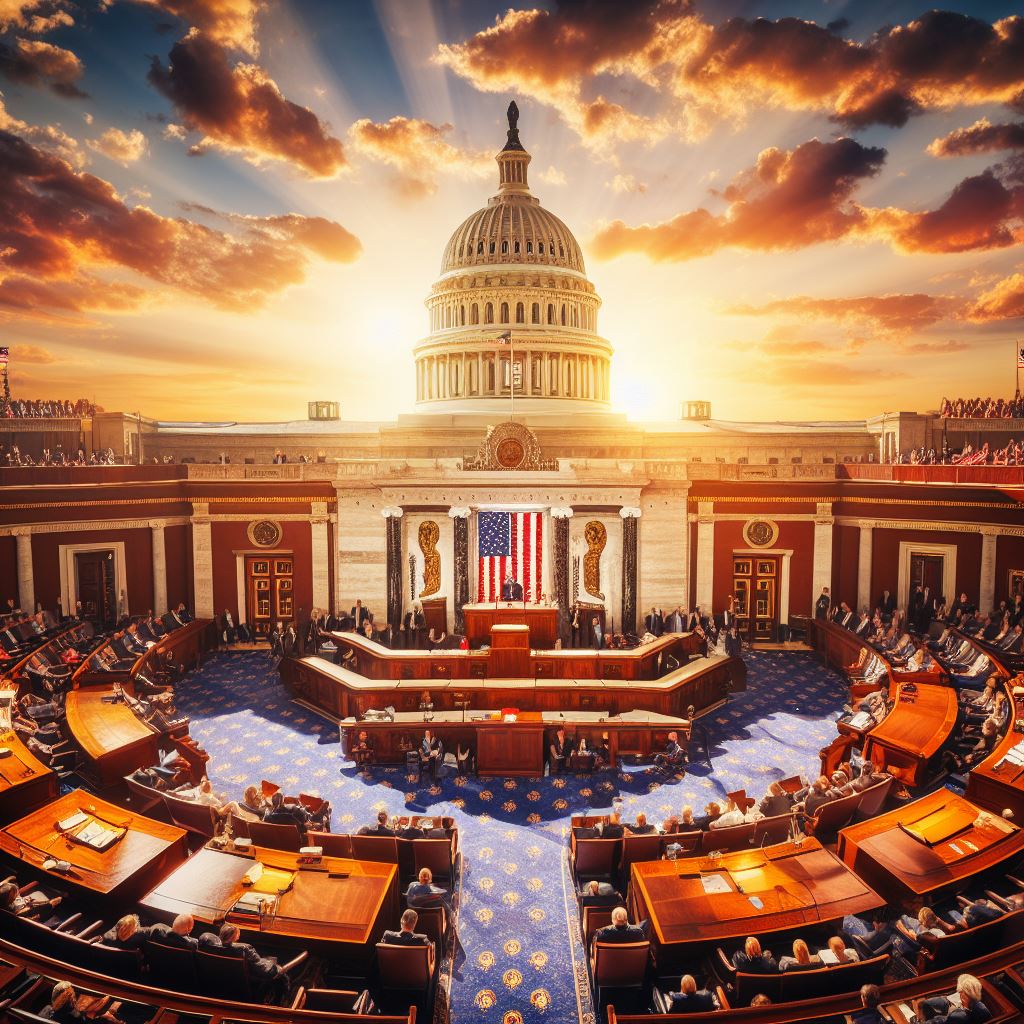The U.S. House of Representatives passed the bill to limit judges’ nationwide injunctions earlier this year.
The U.S. House of Representatives passed a controversial bill that would significantly restrict the ability of federal district court judges to issue nationwide injunctions. The legislation, known as the No Rogue Rulings Act of 2025 (H.R. 1526), cleared the House on April 9 in a narrow 219–213 vote — a largely partisan result that reflects deep tensions over the balance of power between the judiciary and the executive branch.
At its core, the bill would bar district courts from issuing injunctive relief that extends beyond the parties directly involved in a lawsuit. In other words, judges would only be able to block a federal policy for the litigants in a case — not for all Americans. This restriction is aimed at what supporters describe as judicial overreach: when individual judges use their power to block national policy from a single courtroom.
The bill does include a key exception. If two or more states from different federal judicial circuits sue the executive branch, the case would go before a three-judge panel, randomly selected. That panel could, if it chooses, issue an otherwise prohibited broader injunction. Decisions from that panel could then be appealed — either to the relevant U.S. Court of Appeals or directly to the U.S. Supreme Court, at the party’s option.
Proponents of the legislation argue that it is needed to protect the constitutionally granted powers of the executive branch. Representative Darrell Issa, the bill’s author, has framed it as a pushback against what he calls “activist” judges who are using nationwide injunctions to halt presidential policies. Other Republican backers say the bill restores balance by stopping individual judges from effectively dictating national policy.
Supporters also claim the current system allows “judge-shopping,” where litigants file cases in friendly jurisdictions in hopes of obtaining an injunction that applies federally. By limiting the scope of rulings, the bill’s proponents believe it would curb that practice and make judicial processes more predictable.
But the proposal has sparked strong opposition, particularly among Democrats and civil‑liberties advocates. Critics argue that nationwide injunctions are a crucial check on executive power — especially when it comes to protecting constitutional rights or stopping potentially unlawful government actions. They warn that restricting them could weaken the judiciary’s ability to uphold the rule of law.
Some legal scholars also raise concerns about the broader implications for separation of powers. By limiting courts’ authority in this way, the bill could tilt the balance heavily toward the executive branch — especially in cases where only a few individuals are directly affected but the policy itself has sweeping national implications.
Democratic lawmakers have called the bill a politically motivated power grab. They argue it is primarily designed to shield presidential actions — especially those from the current administration — from judicial challenge. Some fear it could undermine long-established legal principles and undermine the capacity of courts to provide meaningful relief to people harmed by government policies.
Even if the bill eventually becomes law, opponents note it would not entirely eliminate nationwide injunctions — only those issued by single district court judges. The three-judge panel mechanism would still allow for national-level relief in cross-state cases, though critics argue the higher hurdle could limit access.
The bill’s passage in the House marks only the first step. It now heads to the Senate, where the political dynamics are more complicated. With a narrow Republican majority, the bill faces an uphill battle — it would likely require support from at least some Democrats to clear procedural hurdles or reach the 60-vote threshold.
Meanwhile, the debate over this legislation is more than just procedural: it reflects a deeper struggle over the future role of the courts in American governance. For Republicans, the bill represents a necessary corrective to what they see as judicial usurpation. For opponents, it’s a threat to crucial constitutional safeguards — one that, if enacted, could permanently reshape how courts check the power of the president.
Ultimately, the No Rogue Rulings Act is shaping up to be a defining battle over judicial power, separation of powers, and the ability of courts to protect individual rights in a highly polarized political climate. Whether it becomes law or not, the fight over it underscores how contentious the role of federal courts remains in modern American politics.




